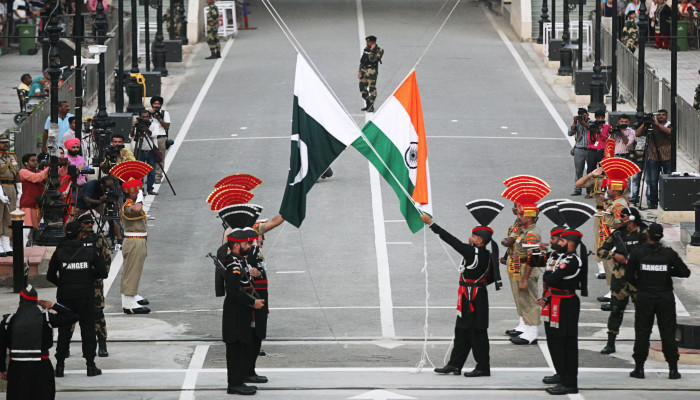India rejects Permanent Court of Arbitration ruling on Indus Water Dispute with Pakistan
- In Reports
- 05:46 PM, Jul 08, 2023
- Myind Staff
In a definitive stance, India has stated its refusal to participate in the proceedings initiated by Pakistan at the Permanent Court of Arbitration concerning two hydropower projects in Kashmir. The court has ruled that it possesses the competence to examine and resolve disputes, but India has made it clear that it will not engage in the process.
The Indian side has asserted that Pakistan's decision to approach the tribunal based in The Hague was unlawful, as the disputes were already being addressed by a neutral expert within the framework of the Indus Waters Treaty. Earlier this year, India also sought modifications to the longstanding treaty, citing the unyielding stance of the Pakistani side.
In response to the Permanent Court of Arbitration's ruling, Arindam Bagchi, spokesperson for the Indian Ministry of External Affairs, stated during a routine media briefing that India has consistently maintained its position that the tribunal proceedings in The Hague are not in accordance with the Indus Waters Treaty and are "clearly illegal."
“Our consistent and principled position has been that the constitution of this so-called court of arbitration is in contravention of the clear letter and spirit of the Indus Waters Treaty. A neutral expert is already seized of the differences pertaining to the Kishanganga and the Ratle [hydropower projects],” he said.
“I don’t think legal sophistry or...a façade is going to compel India to participate in what we think is patently illegal proceedings instituted in contravention of the treaty, that is the Permanent Court of Arbitration,” he added.
Bagchi said the proceedings by the neutral expert are the “only treaty-consistent proceedings at this juncture and parallel proceedings on the same set of issues are prohibited under the Indus Waters Treaty”.
He added, “India has been participating in the treaty-consistent neutral expert proceedings and the last meeting was held [during] February 27-28, and the next meeting is to be held in September.”
Bagchi reiterated that the Indian government has been engaged in discussions with its Pakistani counterpart regarding the potential modification of the Indus Waters Treaty under Article XII (3).
The Permanent Court of Arbitration has released a statement noting that objections raised by India regarding the court's competence were considered, including through correspondence with the World Bank. The Indus Waters Treaty, signed in 1960 after extensive negotiations between India and Pakistan, was brokered by the World Bank, which also played a role as a signatory.
The statement said, “In a unanimous decision, which is binding on the Parties and without appeal, the Court rejected each of the objections raised by India and determined that the Court is competent to consider and determine the disputes set forth in Pakistan’s Request for Arbitration.”
The Permanent Court of Arbitration issued a procedural order regarding the next phase of the proceedings. “In the next phase, the Court will address certain questions concerning the overall interpretation and application of the [Indus Waters] Treaty’s provisions on hydro-electric project design and operation, as well as the legal effect of past decisions of dispute resolution bodies under the Treaty,” the statement said.
According to insiders, India's decision to pursue modifications to the Indus Waters Treaty stemmed directly from Pakistan's 2016 approach to the Permanent Court of Arbitration. Prior to that, Pakistan had requested the World Bank to appoint a "neutral expert" to assess its objections to the Kishanganga and Ratle hydropower projects in 2015.
India argued that Pakistan's unilateral action violated the "graded mechanism of dispute settlement" outlined in Article IX of the Indus Waters Treaty.
Although the treaty has been the most enduring agreement between the two nations, it has faced strains in recent years due to escalating tensions over terrorism and the region of Jammu and Kashmir. Under the treaty, the western rivers (Indus, Jhelum, and Chenab) were assigned to Pakistan, while the eastern rivers (Ravi, Beas, and Sutlej) were allocated to India. The treaty also allowed certain uses of the rivers allocated to the respective countries.
Image source: ZeeNews







Comments